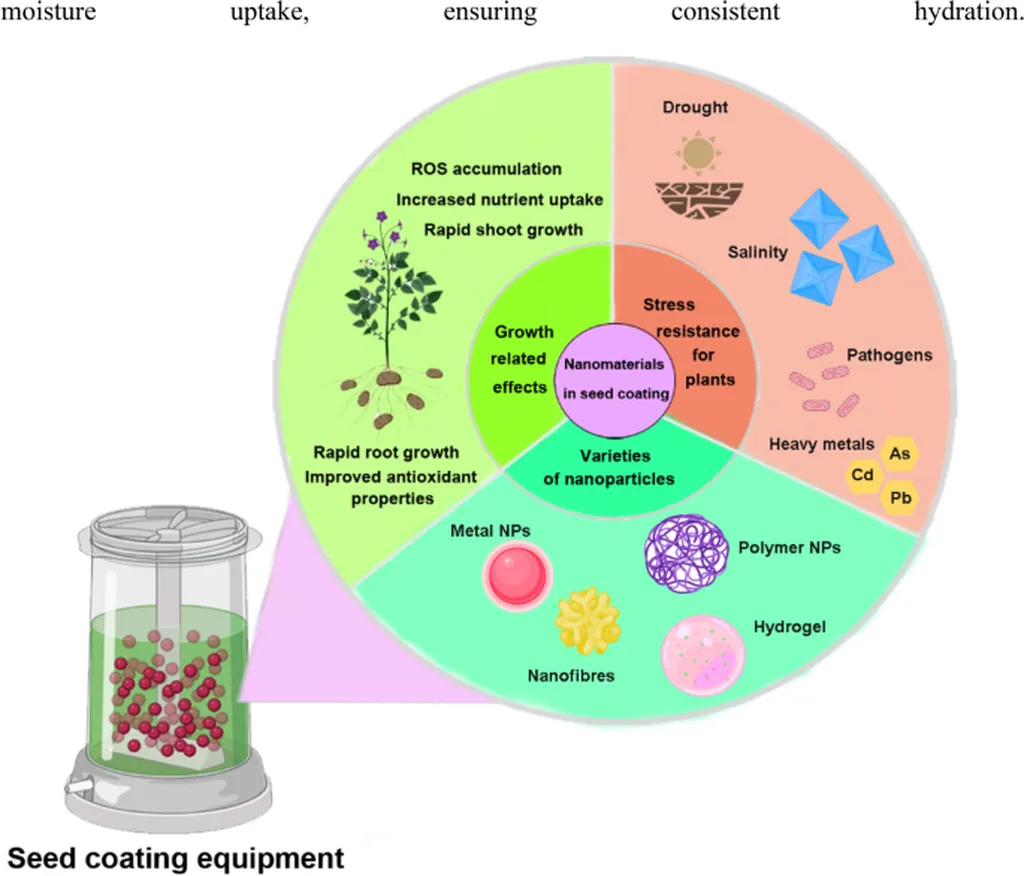In the pursuit of sustainable agriculture, researchers are turning to innovative solutions that harmonize productivity with environmental stewardship. A recent study published in *Discover Applied Sciences* (translated from Tamil as “Exploring Practical Sciences”) sheds light on a promising avenue: biodegradable nanomaterials in seed coating. Led by Pazhani Durgadevi from the Medical Bionanotechnology department at Chettinad Hospital & Research Institute (CHRI), part of Chettinad Academy of Research and Education (CARE), this research explores how these nanomaterials can boost seed vigor and germination, potentially revolutionizing the agricultural landscape.
Seed coating, a technique designed to enhance seed viability and protection, has traditionally relied on synthetic materials. However, the growing demand for eco-friendly practices has spurred interest in biodegradable alternatives. Durgadevi’s study delves into the use of natural polymers such as polysaccharides, proteins, and polymers, which offer a sustainable approach to seed enhancement.
The study highlights the multifunctional role of biodegradable nanomaterials. These materials not only deliver nutrients precisely but also enhance stress resistance and safeguard beneficial soil microbiota. “By modulating water retention, nutrient bioavailability, and plant–microbe interactions, these nanomaterials significantly improve seed performance,” Durgadevi explains. This includes enhanced germination, root development, and stress resistance, crucial factors for early seedling establishment.
The properties of these nanomaterials, such as particle size, surface area, surface charge, and biodegradation rates, play a pivotal role in their effectiveness. Durgadevi’s research underscores the potential of integrating bioactive agents and micronutrients into these coatings, addressing both biotic and abiotic challenges in agriculture.
While laboratory-scale studies have shown promising results, extensive field trials are necessary to validate these innovations across diverse agricultural systems. The implications for the energy sector are substantial. As the world seeks to reduce its carbon footprint, sustainable agricultural practices that enhance crop productivity while aligning with global sustainability goals become increasingly vital.
This research paves the way for future developments in the field, offering a glimpse into a future where agriculture is not only productive but also environmentally responsible. As Durgadevi notes, “The role of biodegradable nanomaterials is pivotal in enhancing crop productivity while aligning with global sustainability goals.” With further research and field trials, these innovations could reshape the agricultural landscape, benefiting both farmers and the environment.

